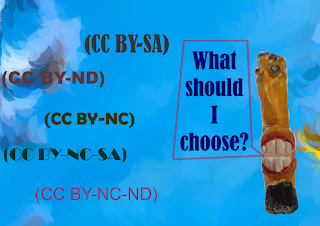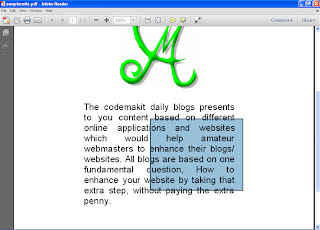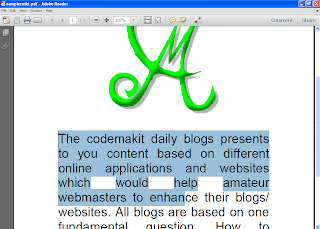 When an interview is conducted for the purpose of publishing, who owns the copyright? Is it the interviewee who responds to questions or the interviewer who shoots the questions?
When an interview is conducted for the purpose of publishing, who owns the copyright? Is it the interviewee who responds to questions or the interviewer who shoots the questions?Codemakit has conducted a fair share of interviews with prominent web personalities in its term. With the pressure to create new and original articles, on often wonders, if an article is created with the cooperation of two individuals, who claims the ownership?
Let us take an example of an email interview. The interviewer or the person who asks the question has as much right over the content as the interviewee who answers the question.
Prevailing Theory
Now let us take a moment to digest. In an article or a video, what readers look after is not the questions of the interviewer, but the answers of the interviewee. So the copyright could be attributed to the interviewee. However since the interview is of no consequence if it is not published through a media, the interviewer too can claim copyright for the same.One theory often prevails that if the interviewer publishes the interview at a location, he/she is called the de facto copyright holder. However as is mentioned in the "Rights of Writers" article, which is not the case always.
If a preset agreement between the interviewer and the interviewee is not present, some courts can look at it in a different light. It can be seen as if the interviewee had agreed implicitly to the copyright.
The matter of copyright often creeps up when the interviewee does not want the interview to be used in one way or another. For example, if you interview a person who does not want a specific part of interview to be broadcasted. When you publish it, you are liable to attract problems on the basis of copyright violation.
Best Practice
So what is the best practice? It is highly advised to get the interviewee to agree to transfer copyright to you before conducting the interview. If it is an email interview, ask the interviewee to accede to an agreement. If it is a videotaped interview, get them to agree on the tape that the copyright of the following interview will be held by the publisher itself. However, if the interviewee wants to say something 'of the records', ensure that you honor the request.If you’re not much of a control freak, you can get the interviewee to agree to a creative commons type license to the work created (Though you’ll have to first check which creative commons license would suit the work better).
Examples
The following is a sample document asking interviewees to accede to the agreement before getting interviewed. Click here to get the sample copyright document for Email Interview and Click here to get the sample copyright document for Video Interview.Related Reading
Check out the awesome article on the dangers of trading an article for a service.You can read about fair use copyright policy and its problems while you’re reading about copyrights.
This gave you,






























.png)

.png)